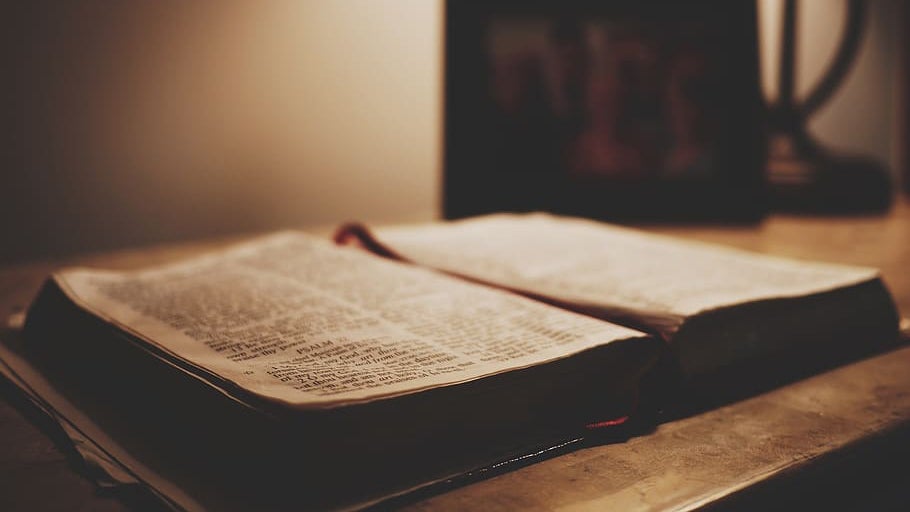God is still in the miracle business
Published 11:41 pm Friday, August 18, 2017
Three months ago I was given what felt like a death sentence. A well-meaning doctor looked at my wife and I and, with a very calm demeanor, said: “Your heart isn’t working well.”
He then showed us an image of my heart beating compared to a healthy heart. Mine barely moved.
“Is this going to kill me?” was my first question.
He didn’t answer. All he could muster was “The 10-year survivability rate is good.”
I had gone to the cardiologist for a routine checkup and was expecting him to say that everything was fine. I wasn’t prepared to be told my heart was failing.
Ten years didn’t feel like very long while I was sitting in the doctor’s office that day. It’s not that he said I would only live 10 more years, but he wasn’t willing to guess beyond that 10-year mark.
In 10 years, my youngest child will be 12 and my oldest 21. The other three children will be somewhere in between.
To say we were shocked — and devastated — would fall short of the emotions we felt. We had planned to go on a quick lunch date after the appointment, but instead cried most of the way home in silence.
We did a lot of praying and planning and thinking in the days following that appointment. While we all live with the certainty of death, the vague notion of dying at some point in the future is much different than the reality that a failing heart could soon kill me. It hung over me like a lead balloon, and still does.
Oddly, I had no symptoms of heart failure. I wasn’t short of breath. I didn’t have difficulty sleeping. I wasn’t retaining fluid. For the most part, I felt as healthy as I ever had. And that stumped the doctors. More than one called it a miracle that I was asymptomatic, considering how low my heart function was.
During those first few days following the news we prayed earnestly for God’s healing, and we also prayed for God to be glorified. No matter what road this disease took, we endeavored to bring glory to God.
I began taking a host of medications and changed my diet. At a six-week checkup, the test results were the same. It appeared the medication wasn’t having much impact. While we had hoped medication would allow me to delay the possibility of a device implant or transplant for several years, our hope faded after that appointment.
So we began making other plans. My wife began exploring master’s degree programs so she would have a way to provide for our five children after I was gone. We looked at ways to start saving for a transplant, which will cost more than $1 million. I taught my oldest children CPR and how to use a portable defibrillator in case my heart stopped. We checked every box we could think of when it came to planning for the future.
And we prayed some more. Our prayers turned from asking for God’s healing to something more along the lines of “don’t let this sickness drive our children away from Christ.” It’s easy to be angry at a God who takes your father too soon.
After that six-week appointment, a cardiologist in Houston, Texas, referred me to the transplant team at Houston Methodist. Though he had yet to lay eyes on me, he took one look at my test results and felt I should be evaluated for a transplant.
That we potentially were going down that path was as devastating as the initial news that I was sick. A heart transplant is a big deal, and more involved than we could have ever imagined.
But just before going to Houston Methodist for the evaluation, a cardiac MRI test showed that my heart function had improved significantly — more than my cardiologist in Jackson expected and more than I had hoped and prayed for. It wasn’t in the normal range, but it was high enough that doctors thought a transplant was unnecessary and an implanted defibrillator probably wouldn’t be necessary either. It was the best news possible.
We made the trip to Houston with a copy of that test result on a CD and proudly showed it to the heart team there. While I still went through some of the transplant evaluation testing, doctors agreed with the findings.
There were two possibilities that explained why my heart function improved so drastically. The first is that my heart wasn’t as sick as we thought, though two different cardiologists and three tests showed it was. The second explanation is that the drugs miraculously began working after that six-week checkup. My cardiologist in Houston wouldn’t say, but I have no doubt it’s the latter.
As my wife will surely attest, I am quite cynical by nature. If you tell me your mother loves you, I’ll ask for proof. It makes me a good fit for the business I’m in, but sometimes means I’m lousy at life. But even the cynical side of me is convinced that God still works miracles and prayer works. I don’t doubt the miracle that is modern medicine, but I also don’t doubt the miracles of an all-powerful God.
Though sharing something as personal as this is not easy, I vowed to glorify God no matter what road this disease took. It appears to be taking the miraculous, so I have no choice but to give God credit for it.
The future is still uncertain. My heart may weaken further and a transplant may still be necessary one day. But for now, my heart is healthy enough to keep me breathing and as long as that’s the case I’ll praise God for it.
Publisher Luke Horton can be reached at luke.horton@dailyleader.com.





